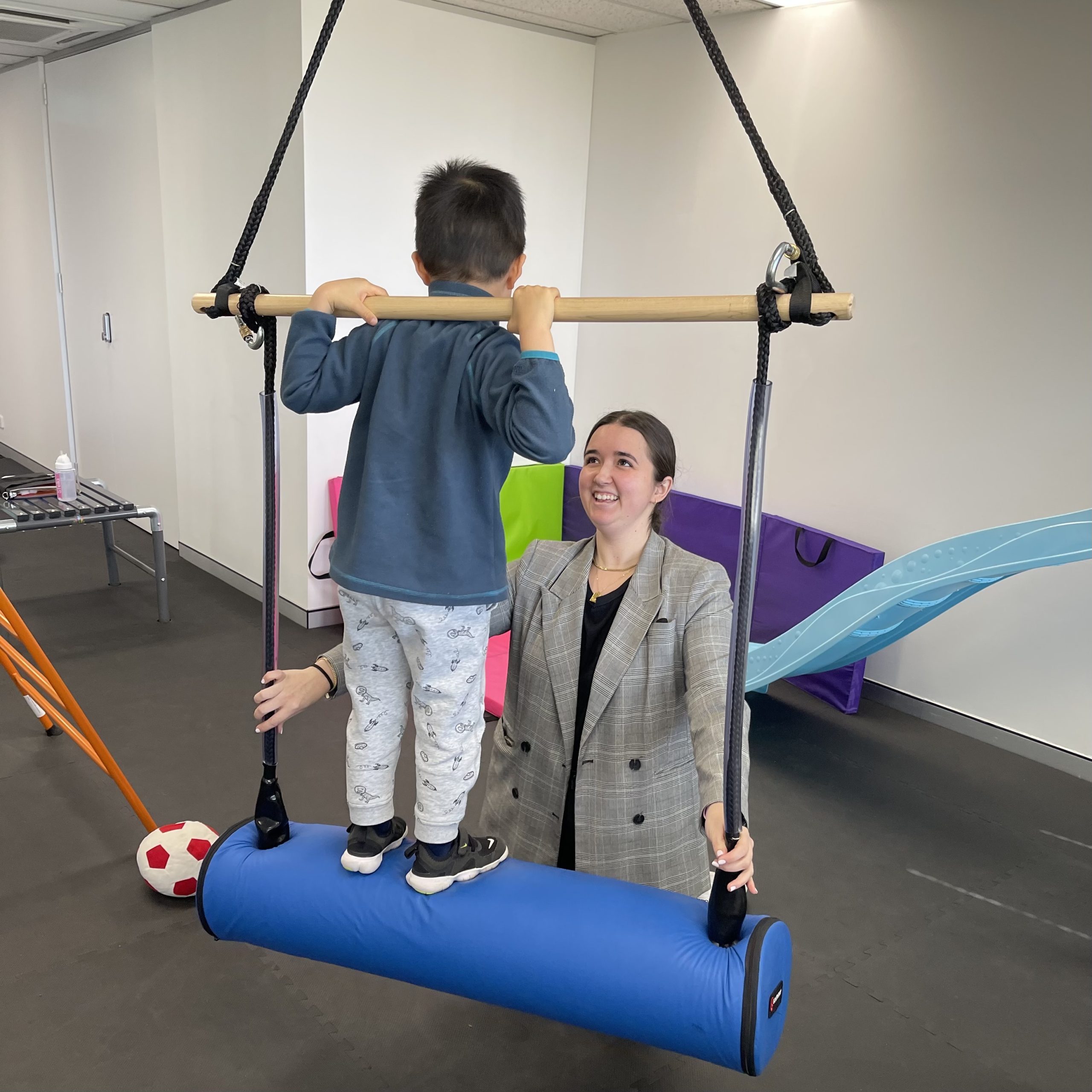
Occupational Therapy for Children Aged 0-5 Years: How Our Bondi Junction and Mascot Clinics Can Help
Occupational therapy (OT) plays a crucial role in supporting the development of young children, particularly during the early years. It helps children acquire essential skills for everyday tasks and achieve important developmental milestones. At OneOnOne Children’s Therapy in Bondi Junction and Mascot, our team is dedicated to helping children aged 0-5 years grow, develop, and thrive.
In this blog, we’ll explore the key Occupational Therapy skills for children in this age group and how our clinics in Bondi Junction and Mascot can support your child’s development.
What Is Occupational Therapy?
Occupational therapy focuses on helping children develop physical, sensory, and cognitive skills necessary for daily activities. Our Occupational Therapists in Bondi Junction and Mascot work closely with children and their families to create personalised intervention plans tailored to each child’s unique needs. These plans support growth and help children reach their developmental milestones.
Occupational Therapy Skills by Age Group
Birth to 6 Months
- Motor Skills: Encouraging tummy time strengthens neck and shoulder muscles, helping babies develop hand-eye coordination.
- Sensory Processing: Babies respond to textures, sounds, and visual stimuli, beginning to develop body awareness and spatial orientation.
- Social Interaction: Early social engagement is shown through smiling, cooing, and eye contact with caregivers.
6 to 12 Months
- Motor Skills: Babies start sitting, crawling, and pulling themselves to stand, while their fine motor skills advance with pincer grasp development.
- Sensory Processing: Exploration becomes hands-on as babies start to interact with objects through touch and movement.
- Social Interaction: Babbling and responding to simple verbal cues emerge, and games like peek-a-boo enhance social development.
1 to 2 Years
- Motor Skills: Walking independently, climbing, and improved fine motor skills, such as stacking blocks, are key developments.
- Sensory Processing: Toddlers explore different textures and begin to show preferences for sensory experiences.
- Social Interaction: Simple words and imitation are used, while parallel play becomes more common.
2 to 3 Years
- Motor Skills: Confidence in running and jumping increases, and fine motor skills advance through activities like drawing and using utensils.
- Sensory Processing: Messy play with sand or water becomes more enjoyable, helping with body awareness and motor planning.
- Social Interaction: Using two- to three-word sentences and engaging in imaginative play start to emerge.
3 to 4 Years
- Motor Skills: Hopping, balancing, and complex fine motor activities such as cutting with scissors develop.
- Sensory Processing: Children begin to understand sensory concepts like loud vs. quiet or rough vs. gentle.
- Social Interaction: Cooperative play and developing early friendships become essential for social milestones.
4 to 5 Years
- Motor Skills: Skipping, climbing, and improving handwriting skills are key developments.
- Sensory Processing: Sensory regulation improves, enabling children to cope better with sensory challenges.
- Social Interaction: Group participation, following instructions, and advanced social skills such as sharing and taking turns are crucial for school readiness.
The Benefits of Occupational Therapy for Children Aged 0-5 Years
Occupational therapy offers significant benefits for young children, including:
- Enhanced Motor Skills: OT helps children improve strength, coordination, and dexterity for daily tasks.
- Improved Sensory Processing: Children learn to process sensory input in a regulated way, managing sensitivities more effectively.
- Increased Independence: OT fosters independence in self-care tasks such as dressing, feeding, and toileting.
- Social and Emotional Development: OT promotes social interaction and helps children manage emotions and behaviours.
- School Readiness: OT prepares children for school, helping them focus, complete tasks, and engage socially.
When to Seek Occupational Therapy in Bondi Junction and Mascot
It’s essential to seek help from an Occupational Therapist if your child shows signs of delay in their development. Consider OT if your child:
- Experiences delays in motor skills like sitting, crawling, or walking.
- Struggles with fine motor tasks, such as holding a pencil or using utensils.
- Displays sensory processing issues, such as being overly sensitive to certain textures or sounds.
- Has difficulty with self-care tasks appropriate for their age.
- Struggles with social interactions and peer engagement.
How Occupational Therapy Works for 0-5 Years
At our Bondi Junction and Mascot clinics, we follow a structured approach to Occupational Therapy for young children:
- Assessment: A thorough evaluation to determine the child’s strengths and areas for improvement.
- Goal Setting: Collaboratively setting clear, achievable goals with the family.
- Intervention: Play-based activities, exercises, and strategies are used to work towards developmental goals.
- Home Programs: Providing families with activities and strategies to continue supporting the child’s development at home.
Conclusion
Occupational Therapy is crucial for helping children aged 0-5 years develop the skills they need to succeed in daily life. Our Occupational Therapists at OneOnOne Children’s Therapy in Bondi Junction and Mascot are dedicated to supporting your child’s development through personalised, evidence-based interventions. We are here to help your child reach their full potential and thrive.
Contact Us Today
If you’re concerned about your child’s development, our AHPRA-registered Occupational Therapists are ready to support you.
- Call us at (02) 80657837
- Email us to book a consultation
Read our blog for more information on how Occupational Therapy at our Bondi Junction and Mascot clinics can help your child’s growth and success.
Let’s work together to support your child’s journey!
We are a dedicated team of Occupational Therapists, Speech Pathologists, Certified ESDM Therapists, and Psychologists, serving families in Bondi Junction and Mascot, providing top-quality care for children with learning difficulties, developmental delays, and autism.
